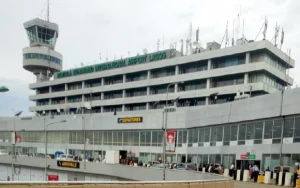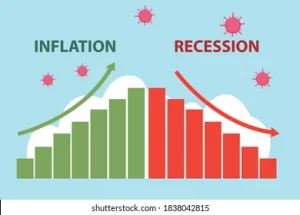
The absence of telecom infrastructure, especially in rural areas, is fueling 14 per cent of access gaps in Nigeria and other parts of Africa.
This has also been compounded by access costs.
A document titled, ‘Regulatory Trends and Policy Strategies Shaping Digital and Technological Transformation,’ presented by the Chief of Digital Knowledge Society Department, ITU, BDT, Sofie Maddens, presented at a telecoms forum in Lagos, revealed this concern.
Maddens noted that despite progress around digital Africa, significant gaps remained. She said 38 per cent of the population in Africa used the Internet in 2024, up from 25 per cent in 2018, but still the lowest regional rate.
She revealed that mobile broadband remained the main technology for Internet access, saying 70 per cent of the population is covered by 4G or 5G, and 16 per cent are still relying on 3G, while 14 per cent are without access.
While the document noted that youth and urban populations drive adoption, it listed key access barriers, including cost, digital illiteracy, and limited rural infrastructure.
According to her, due to access gaps, persistent digital divides are still within countries.
Specifically, she said 43 per cent of men are online compared to 31 per cent of women, yielding the lowest gender parity score (0.72) among all regions and almost no improvement since 2018 (0.69).
She noted in the document that 57 per cent of urban populations use the Internet, against 23 per cent in rural areas. In terms of generation, she disclosed that 53 per cent of youth (15–24) use the Internet, against 34 per cent for the rest of the population.
Maddens stressed that affordability remained a major barrier to adoption and meaningful use and access.
“Africa remains the least affordable region for Internet access. Affordability gap exacerbates digital divides and limits uptake, even in areas with coverage. Cost of entry-level mobile plan = 3.9 per cent of GNI per capita (UN target = below two per cent) against Fixed broadband = 13.4 per cent of GNI per capita,” she stated.
The ITU chief revealed that eight African countries are in the most mature stage of digital regulation, saying only 18 per cent of African countries reached G4 (the most mature stage of regulation) against 38 per cent globally.
In terms of digital governance score, she disclosed that Nigeria and others with 43 per cent trail the global average at 52 per cent.
While regulatory capacity is strong at 71 per cent, the region’s digital market instruments are weak, further fueled by limited stakeholder engagement and inclusion strategies.
Further, Maddens noted that data gaps hinder effective policymaking, investment, and planning.
She stressed that data must be embedded into national digital strategies, saying only nine countries among 44 have ICT household data more recent than 2021.
According to her, Malawi is the only country to have reported data on ICT skills based on the latest ITU methodology, saying ITU provides extensive capacity development and technical assistance.
In terms of risks and challenges, she noted that fragmented governance may widen digital divides and that cybersecurity, misinformation, and e-waste risks are rising.
“Without targeted support and investment, LDCs, LLDCs, and SIDS may fall further behind in the global digital economy. Stronger data, policy, and investment frameworks are needed,” she stated.
She stressed the need for the region to expand 4G/5G coverage, especially in rural areas, improve affordability of services, invest in digital skills and inclusive strategies to close gender, youth, and rural gaps and promote regulatory harmonisation and cooperation.
MEANWHILE, consumption of the Internet in Nigeria dropped slightly in Q1. The Nigerian Communications Commission (NCC) subscription data showed that usage declined from 1,000,930.60 terabytes (TB) in January to 893,054.80 TB in February. It picked up again in March, reaching 995,876.10 TB.
Analysts believed that the drop might have been triggered by the implementation of 50 per cent tariff hike by telecom operators on January 20, which subsequently impacted people’s consumption patterns due to other competing economic variables.
The hike raised the floor price of calls to N9.6 per minute from N6.40, the cost of SMS to N6 from N4 and the cost of 1GB of data to N431.25 from N287.5.
Prior to the implementation of the hike, the Chief Executive Officer of Financial Derivatives Company, Bismarck Rewane, at a forum in Lagos, had noted that while the tariff increase would benefit operators, it would put additional strain on consumers’ pockets, potentially “resulting in reduced usage from consumers”.








